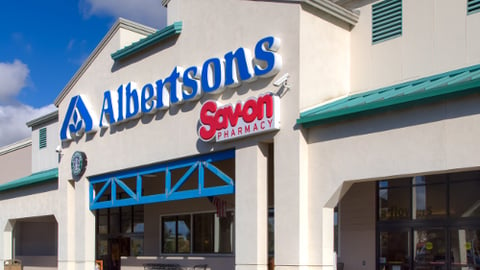How Grocers Can Unlock Capital Through Real Estate
Rising operational costs, as well as rising food costs, have challenged already thin margins in the grocery business. Further, hawkish Fed policies are raising the cost of debt capital, and the most recent tremor in banking has caused lenders to be more risk averse.
What many grocers may not realize, however, is that the capital they need might already be within their grasp, or to be specific, beneath their feet, in the form of the real estate their facility stands on.
[Read more: "How to Renovate Stores on a Budget"]
Sale Leasebacks
Simultaneously selling an owned property and leasing it back from the buyer under a long-term lease is called a sale leaseback – a strategic financing tool that allows grocers to unlock capital tied up in real estate. The cash raised from these transactions can be used to fund growth initiatives such as investment in tech infrastructure to keep up with pandemic-fueled e-commerce requirements and in new facilities, or to pay down debt that may be more costly today because of rising interest rates.
Sale leaseback transactions are particularly suitable for grocers, since many operators own their properties. And, while senior management might be uncomfortable with the thought of giving up control of an owned property that’s integral to the business, relinquishing ownership doesn’t mean losing control over mission-critical facilities. In fact, the long-term lease that’s part and parcel of a sale leaseback offers grocers a similar level of control as if they still owned the property. A typical sale leaseback term generally spans 15 years or longer, with renewals extending for an additional 20 years or more at the tenant’s option, providing effective control for 35 to 40-plus years.
Transactions in the Grocery Industry
A well-known grocer that has made use of the sale leaseback strategy is national player Albertsons Cos. (whose banners include Albertsons, Safeway, Shaw’s and Acme). The company executed more than $2.6 billion of sale leaseback transactions, with assets ranging from retail stores to distribution centers, between 2017 and 2019.
Early last year, regional player Hy-Vee Inc., brought in at least $118 million through a package of sale leaseback deals for stores in the Minneapolis-St. Paul region.
In 2021, The Kroger Co. executed a sale leaseback on 28 of its grocery store properties in Washington state, Oregon, Idaho and Alaska, totaling 4.5 million square feet. Harps Food Stores also completed a sale leaseback of 13 free-standing grocery stores for $30 million in Arkansas and Missouri.
Sale leasebacks had a record year in 2022 in both transaction volume (874 transactions) and dollar amount ($31 billion). Robust sale leaseback activity last year was driven by multiple factors, including buyers’ strong appetite to deploy capital, attractive arbitrage opportunity, and the sale leaseback’s attractive cost compared with other forms of capital.
This year, the big sale leaseback theme is that on a relative cost-of-capital basis, sale leasebacks are even more attractive now than a year ago, which makes it a good time for grocers to consider this financing option. The cost of corporate debt has risen by more than 400 basis points in the last year, representing doubling of interest costs in some circumstances. The cost for a sale leaseback has risen, too, but the rise has been much more muted (as measured by cap rates), widening by approximately 100 to 150 basis points.
Prerequisites
Simply owning real estate, per se, isn’t enough to raise capital in a sale leaseback transaction. The health of the underlying business and its potential for growth are important factors, too. Investors seek tenants who can effectively fulfill obligations over the life of a long-term lease. Moreover, investors are looking for stable companies with strong balance sheets that can withstand fluctuations in earnings and sales.
On the other hand, location of the property doesn’t play as big a role in a sale leaseback transaction compared with typical real estate deals. Since sale leasebacks are more heavily reliant on the underlying credit of the company, a property that’s not in tier-one metropolitan areas or prime locations could be attractive as long as the underlying business is healthy.
There are a number of levers available so that a grocer can structure the optimal transaction for their unique circumstances. These include the term of the lease, base rent and rent escalations. Negotiating a change-of-control provision that doesn’t obstruct an eventual exit or sale of the business is also crucial.
Value Arbitrage
Sale leaseback transactions are especially attractive for grocers because of the arbitrage opportunity they present. Grocers have the option to sell their real estate at a valuation multiple that’s frequently higher than the business valuation multiple.
Keep in mind that almost all financial assets, including office buildings, factories and even businesses, are valued at a multiple of the cash flow they produce. In the current environment, real estate valuation multiples are higher than business valuation multiples, allowing business owners to reinvest proceeds from real estate assets into corporate assets that can increase the company’s potential for growth and higher income generation.
The challenges grocers face now, particularly increasing costs, supply chain disruptions, labor shortages, changing consumer behavior and fierce competition, may persist. Accordingly, the capital that a sale leaseback transaction provides may be more important now than ever.






